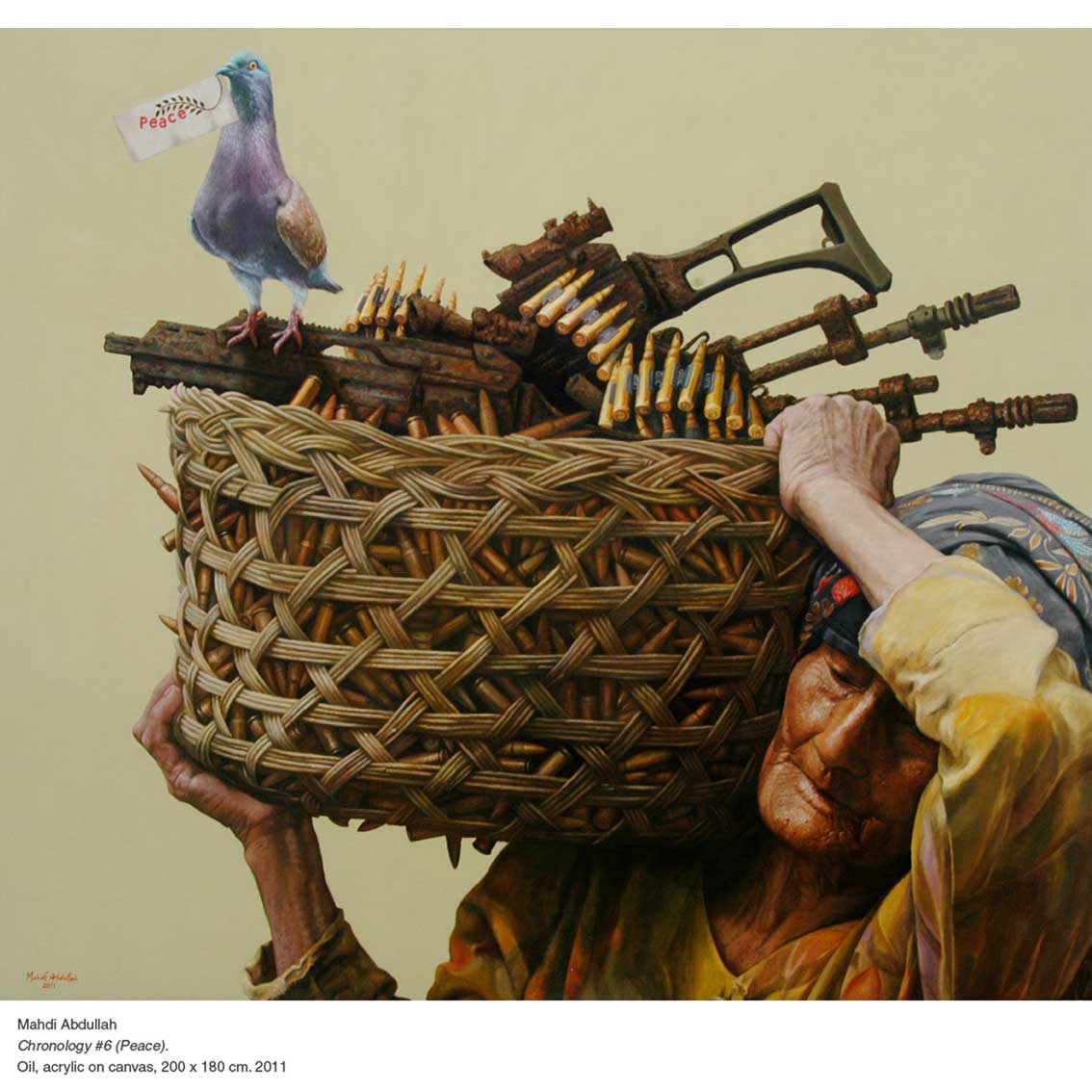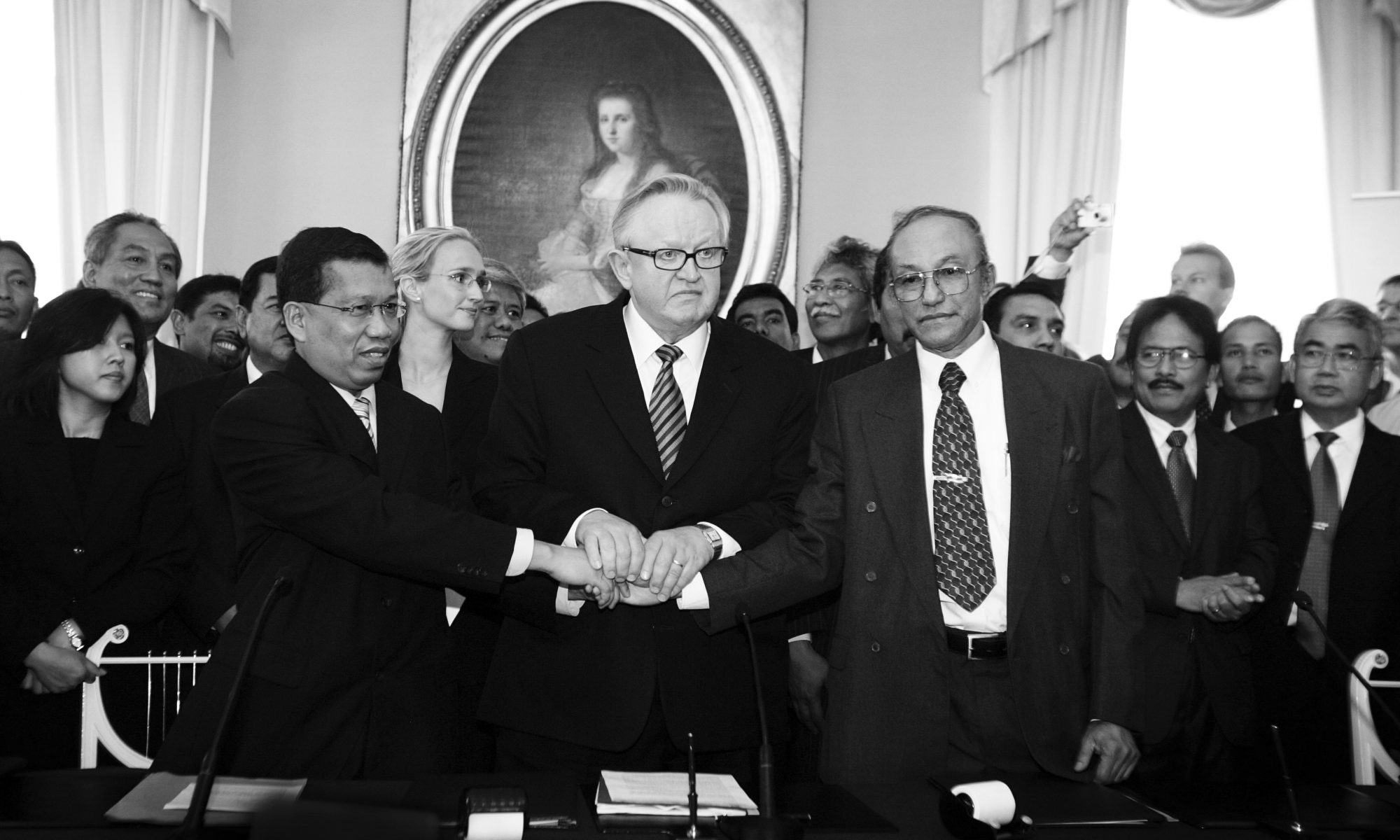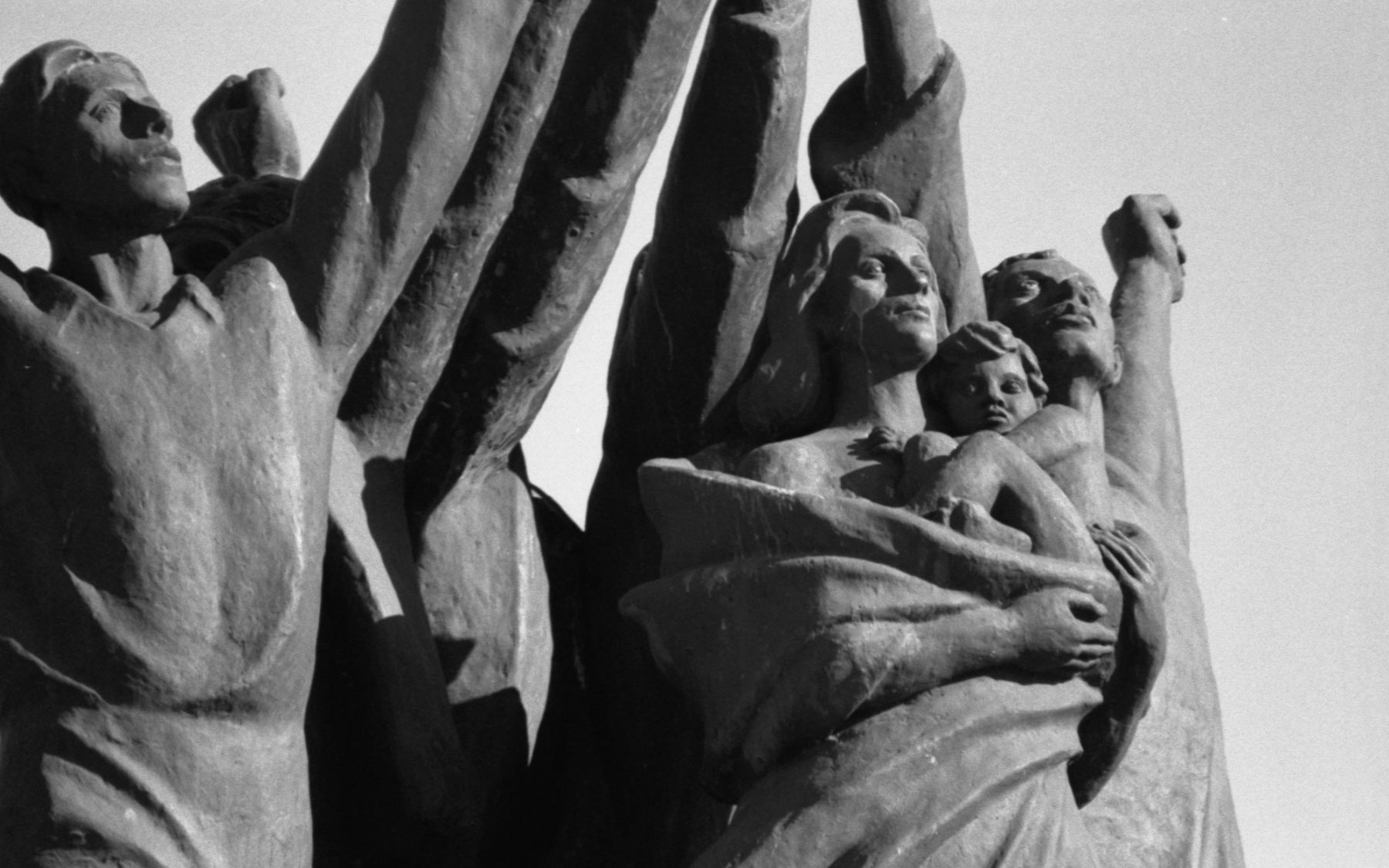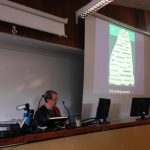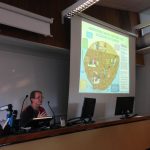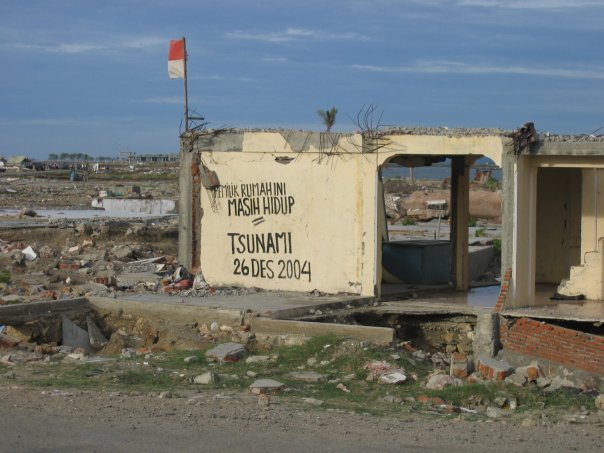Scraps of Hope video screening, meet & greet talks
5-19 September
Porthania, Yliopistonkatu 3, 00100 Helsinki
https://www.facebook.com/events/1059538470806668/?ti=icl
Video screenings daily at 11.45am, Unicafe video screen plus Mondays & Fridays Lehtisali (2nd floor)
Meet & greet talks on Mondays and Fridays at 12.30-13.30 Lehtisali (2nd floor)
Meet and greet programme:
Mon 5 Sept
10 Years of Gender and EU Civilian Crisis Management Missions: From Aceh Monitoring Mission (AMM) onwards
Aceh Monitoring Mission (AMM) was among the first EU civilian crisis management missions. Through it the EU and five ASEAN Member States monitored the peace settlement between the Indonesian government and Free Aceh Movement in 2005-2006. How did AMM incorporate gender concerns of armed conflict and peace agreements, mandated by the UN Security Council resolution 1325? How has the EU crisis management instrument evolved since the AMM? What has that meant for gender equality and justice concerns?
Docent, Academy of Finland Research Fellow Marjaana Jauhola talks with Dr. Leena Avonius, Researcher, Crisis Management Center Finland, former AMM Reintegration Co-ordinator (2005-6)
Fri 9 Sept
The use and abuse of history: Post-authoritarianism, Regime Change and Democratization in Indonesia
Following the exit of President Suharto in 1999, Indonesia has gone through a series of democratizing measures such as decentralisation, freedom of press, political parties, amendments to constitution and new state institutions. What role have these played in the settlement of armed conflict in Aceh, and what are its consequences for gender equality concerns? How has Indonesia come to terms with its violent history and atrocities of its citizens during the massacre of 1965-66 targeting members and suspects of affiliates of Indonesian Communist Party? The Aceh peace process included provisions for human rights court and truth reconciliation process. Is there scope for justice in Aceh peace process?
Docent, Academy of Finland Research Fellow Marjaana Jauhola talks with Dr. Ratih Dwiyani Adiputri, University of Jyväskylä a former legislative expert in the Indonesian parliament (2000-9) and advisor of USAID parliamentary project in Aceh (2006-7).
Mon 12 Sept
Complex emergencies and humanitarian assistance: what has gender got to do with it?
Every year, conflicts and natural disasters cause suffering for millions of people – usually for the poorest, marginalized and vulnerable populations. Humanitarian assistance aims to provide life-saving assistance, reduce human suffering and maintain dignity during and aftermath of crises. How well do these efforts address gendered vulnerabilities and capabilities? What would gender mainstreaming of humanitarian assistance look alike?
Docent, Academy of Finland Research Fellow Marjaana Jauhola talks with Satu Lassila, Senior Adviser for Humanitarian Assistance and Policy, Ministry for Foreign Affairs, former World Food Programme (WFP) Gender Adviser & Programme Adviser 1999-2004, Emergency Officer and Head of Sub-Office of WFP tsunami operation, in Aceh 2005 and Senior Adviser for Assistant-Executive Director of UN Women (HQ) 2014-15.
Fri 16 Sept
Videos on Book (VoB) – new format for media enriched e-publishing
Scraps of Hope, with the support from Finnish Cultural Foundation, has developed devise responsive hybrid/media enriched electronic publishing platform Videos on Book (VoB) – one of its first kinds in Finland (http://vob.fi/, soon available in English!).
The first demo version was released in 2015 of Marjaana Jauhola’s peer-reviewed article ‘Scraps of Home’ and the first book ‘Five women, hundred lives’ – focusing on the lived experiences of dissociation – in June 2016.
Digital designer Seija Hirstiö will introduce the VoB platform and tell how the book ’Five women, hundred lives’ came about (dissociation.fi).
Mon 19 Sept
Visual ethnography – collaboration with an ethnographer and digital designer
How to turn ethnographic life history method into documentary films or short videos? How to tackle ethical considerations of documenting lives of non-elites in a complex post-conflict context? Docent, Academy of Finland Research Fellow Marjaana Jauhola and digital designer Seija Hirstiö reflect upon their experience in shooting the Scraps of Hope videos in Indonesia in December 2015.
For more information:
scrapsofhope.fi
Facebook: Scraps of Hope
Marjaana Jauhola, (marjaana.jauhola(at)helsinki.fi, 02941-24228)

